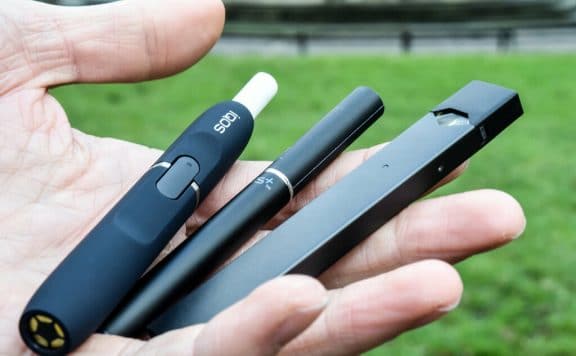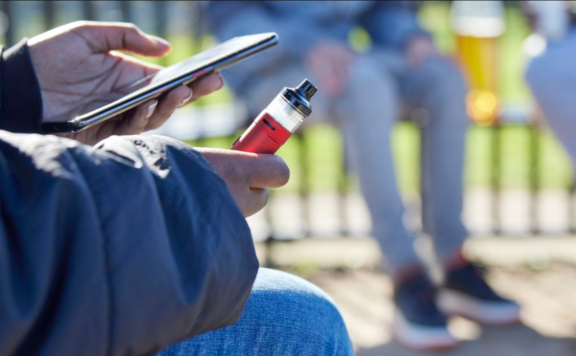The government has been trying to find ways to discourage the youth from using vaping products. One of the methods the government has used is to increase taxes on vaping products. The problem with this is that it is impossible to manage habits especially if that is a habit common to millions of people. This is particularly if the people involved are young people who love to look for alternatives.
A new study by professor Michael Pesko of Georgia State University and Professor Abigail Friedman of Yale University now shows that the increase of taxes on vaping products has led many youths to dump e-cigarettes and instead embrace tobacco smoking.
Their study sort to investigate the effect of tax increases on e-cigarettes on both traditional cigarette smoking and vaping among young consumers (18-25). The results of the study showed that an increase in taxes on vaping products leads to a decrease in vaping. At the same time the decrease in vaping corresponded with an increase in smoking traditional tobacco cigarettes among young consumers.
“A one-dollar increase in [vaping] taxes yielded significant reductions in young adults’ daily vaping alongside increases in recent smoking,” said the authors of the study.
The study, therefore, concludes that: “higher taxes on electronic nicotine delivery systems (ENDS) are associated with decreased ENDS use but increased cigarette smoking among 18–25-year-olds.”
This study shows that taxes on vaping products are having a substitute effect on e-cigarette users. An increase in the price of vaping products due to increased taxes leads to a decrease in the sales of that product. However, consumers of vaping products switch to the available cheap alternative.
The truth is that vaping still has many negative health impacts associated with smoking. However, early studies show that it’s the lesser evil of the two. For example, vaping products do not produce smoke. It is this smoke in traditional cigarettes that is associated with lung cancer. By vaping instead of smoking cigarettes, one eliminates the risk of developing lung cancer. Health researchers estimate that electronic cigarettes are 95% safer when compared to traditional cigarettes.
The takeaway from this study is that the government’s good intention is now hurting the health of the very people the government sort to help. While taxes were designed to help young people slow down on vaping so that they can minimize the negative impacts of the habit, it has forced them to consider cheaper alternatives. The cheaper alternative they are now using is more dangerous to the health of the users than vaping. The use of taxes to manage the behaviour of millions of young people has thus backfired.
This is not a surprise at all. according to an article by James Harrigan, a political Scientist and Antony Davies, an economist, “every human action have both intended and unintended consequences. Human beings react to every rule, regulation, and order governments impose, and their reactions result in outcomes that can be quite different than the outcomes lawmakers intended.”
This is called the cobra effect. It stems from an interesting effect of the government trying to use local to control cobra infestation in an Indian city. The government simply placed a bounty on cobras and the locals went hunting for them to receive the bounty. This worked and the cobra population began to drop. However, this presented a new problem to the locals with the dwindling cobra population the hunters were forced to consider other means of earning a lively hood. The solution was easy, they simply began raising the cobras at home to continue receiving the bounty.
Unfortunately for them, the government decided to cancel the bounty. With nothing to do with the cobras, the locals decide to release them. This created an even more severe cobra infestation than before.
The same can be seen in vaping products. Vaping products were created to help smokers quit smoking which causes cancer and many other dangerous ailments. However, vaping has become popular with the youth many of who have never smoked. When the government tries to control their use, the youth head straight to the cigarettes the vaping products were trying to cut from the market.






